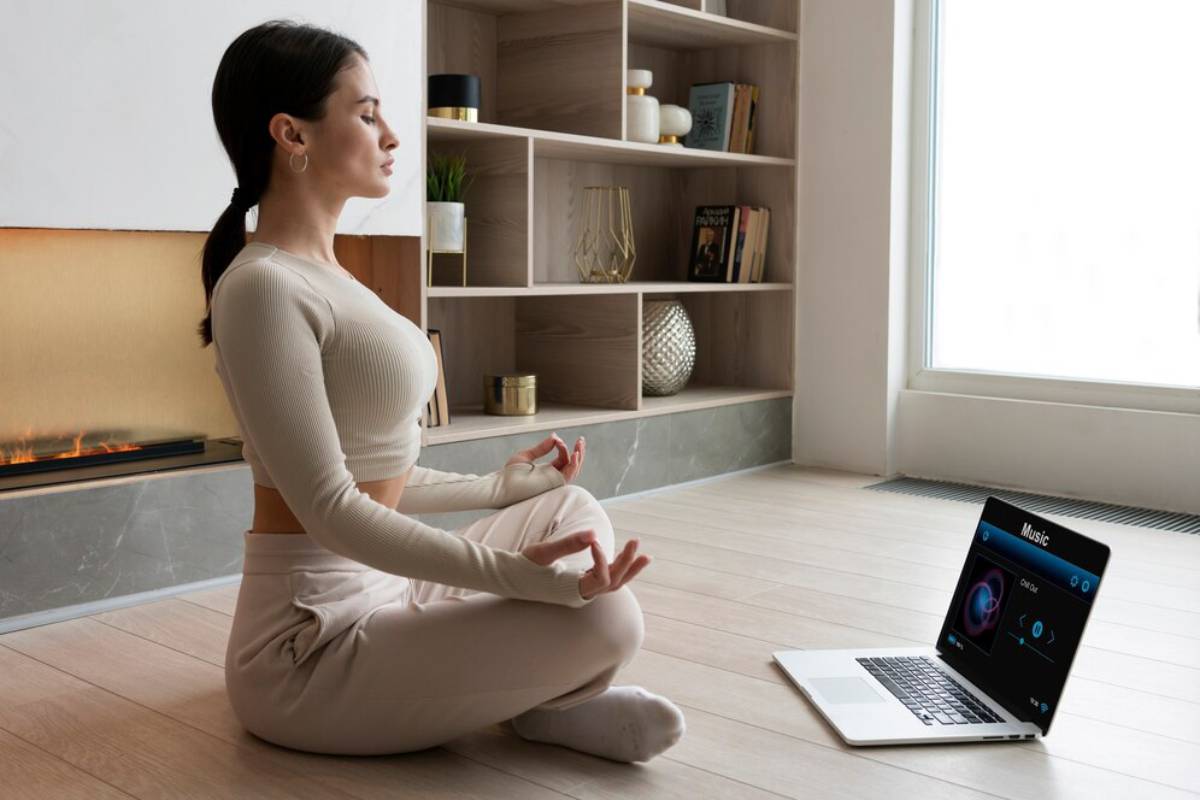
Daily Habits That Support Mental Clarity and Calm
In today’s busy world, stress, distractions, and burnout often cloud our mental clarity. You can achieve a calm and focused mind. It’s not just a dream. You can build it with mindfulness habits and regular routines.
Mindful practices can improve your mental health. They help whether you have a busy schedule, are dealing with emotions, or want to stay present.
In this guide, we’ll look at habits that promote inner peace. These habits can sharpen your mind and help you feel more grounded and purposeful daily.
Why Mental Clarity Matters
Mental clarity goes beyond just feeling alert. It means focusing on what matters. You can process thoughts efficiently and stay calm during challenges in life. It allows you to:
- Make decisions without second-guessing
- Communicate more effectively
- Reduce anxiety and overwhelm
- Stay aligned with your values and goals
When paired with a sense of calm, clarity becomes a superpower. Clarity promotes resilience, creativity, and emotional balance, which are key parts of a healthy life.
1. Start Your Day with Intention
Your morning sets the tone for the rest of the day. Before diving into work, social media, or emails, take a moment to let your brain wake up with intention.

Morning Mental Clarity Ritual:
- Drink a glass of water right after waking to rehydrate your brain
- Spend 5–10 minutes journaling about how you want to feel and what matters most today
- Set a simple affirmation, like: “Today, I choose clarity and calm.”
Shifting from reacting to reflecting cuts down mental noise. It also gives you a solid start to your day.
2. Prioritize Sleep as a Mental Health Tool
Sleep is vital for our mental health. Still, many of us sacrifice it for late-night scrolling or extra work hours. Poor sleep impairs focus, memory, and emotional regulation.
Simple Sleep Hygiene Tips:
- Set a consistent bedtime—even on weekends
- Dim screens 1 hour before bed or use blue light blockers
- Keep your bedroom cool and dark
- Try a wind-down ritual: light stretching, reading, or deep breathing
A rested brain is more capable of clarity, patience, and calm.

3. Practice Mindfulness in Micro-Moments
You don’t need a 30-minute meditation session to benefit from mindfulness. Small, intentional pauses sprinkled throughout the day are incredibly effective.
Examples of Mindfulness Habits:
- Take 3 deep breaths before responding to a text or email
- Use transitions (like walking from one room to another) as reminders to check in with yourself
- Eat lunch without distractions—focus on taste, texture, and smell
These brief pauses help reset your nervous system and bring you back to the present moment.

4. Movement for Mental Energy
Physical activity benefits the body as well as the mind. It reduces stress hormones and increases endorphins.
Best Movement Practices for Mental Clarity:
- Morning walks to clear your head and get natural sunlight
- Yoga or tai chi to combine breath, balance, and mindfulness
- Dance or stretching breaks during the workday to shake off stagnation
Even 10 minutes a day can dramatically improve daily mental health.
5. Simplify Your Digital Environment
Mental clutter often begins in our digital world. Endless notifications, open tabs, and content overload overwhelm the brain.
Digital Declutter Checklist:
- Turn off non-essential app notifications
- Use tools like “Do Not Disturb” or Focus Modes
- Set time blocks for email and social media instead of checking them constantly
- Close tabs you’re not using—every open window is a tiny mental drain
By reducing the noise, your mind has more room to think clearly.
6. Eat for Brain Health
What you consume affects how you think and feel. A nourishing diet supports neurotransmitter production, hormone balance, and cognitive function.
Brain-Boosting Nutrition Tips:
- Focus on whole foods: leafy greens, berries, nuts, and fatty fish
- Stay hydrated—dehydration leads to fogginess
- Avoid heavy sugar or caffeine spikes that lead to crashes
Think of food as fuel for clarity, not just energy.
7. Engage in Daily Reflection
Reflecting gently at the end of your day helps you become more aware of your feelings. It also brings mental closure, which can lower anxiety and promote better sleep.
Evening Reflection Prompts:
- What moments today felt most clear or peaceful?
- What drained my energy or overwhelmed me?
- How can I protect my calm more effectively tomorrow?
This practice promotes self-understanding and makes space for intentional growth.
8. Curate Your Mental Inputs
Just as you’re selective about your food, be mindful of what you feed your mind. This includes news, social media, and even conversations.
Mental Clarity Tip:
- Surround yourself with uplifting, inspiring content
- Limit time spent doom-scrolling or consuming negativity
- Listen to podcasts, music, or audiobooks that expand your thinking
Protecting your mental space helps you stay emotionally centred.
9. Create a “Clarity Zone” in Your Environment
Your physical space impacts your inner world. A cluttered, chaotic room can mimic mental clutter.
How to Build Your Calm Corner:
- Choose a spot for a mental reset: a reading nook, desk, or meditation cushion
- Add elements that soothe you—candles, plants, soft lighting, textures
- Keep it tidy and reserved for mindfulness, journaling, or breathwork
This space becomes a sanctuary for stillness and perspective.
10. Build Connection with Others
Isolation amplifies stress and foggy thinking. Staying connected helps boost mental and emotional health. It’s essential to reach out to those who listen and support you.
Connection Tips:
- Call or message one loved one per day
- Join a community, whether virtual or in-person, around a shared interest
- Be open about your mental space—vulnerability breeds connection
We’re made for connection. Community brings clarity by offering support and shared energy.
Final Thoughts: Mental Clarity Is a Practice, Not a Destination
You don’t need to overhaul your life to find peace. You can boost mental clarity with small, purposeful habits that fit your current situation.
Each breath, pause, walk, or mindful meal is a step toward a clearer, calmer mind. Over time, these mindfulness habits transform how you relate to stress, uncertainty, and the world around you.
So today, start small. Choose one habit and give it your full attention. Your future self—more focused, more centered—will thank you.